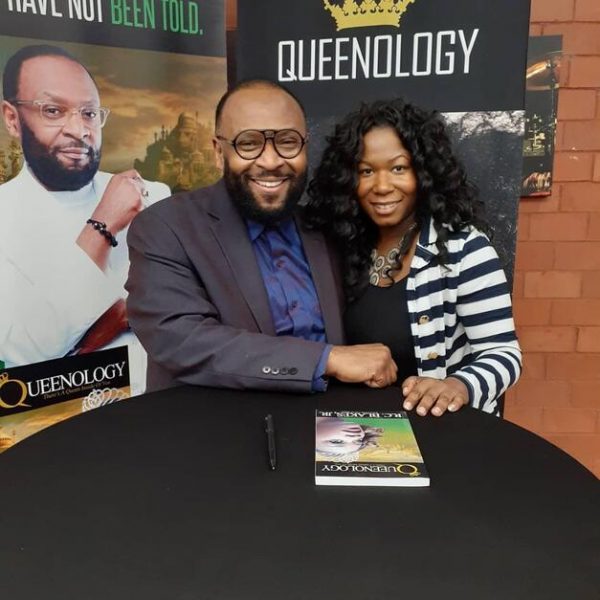This is the final blog in our series, “Are You Read to Date Quiz & Discussion.” Please, review the previous blogs in this series to take advantage of the information. This series was done to introduce my latest book, Patterns of the Heart Discernment in Choosing a Potential Spouse. The book helps people who desire godly relationships to ask the right questions during the dating and pre-dating stage. Asking and observing patterns related to these questions will help determine who is suitable and who is not. The quiz was designed to help a person to see if they are ready to date now or if they should wait some time while allowing the Lord to work in them to bring about the maturity, resolve, and the whole approach to life needed to build a solid relationship. Below are the last three questions in the quiz broken down.
Question #7
Do you have an intimate relationship with Jesus Christ?
- Yes, 81%
- No, 19%
I was a bit grieved to see that 19% of those who took the quiz do not have a relationship with God. My sincere prayers go out to all who do not know the Lord. Especially, during a season like we are in now with the Coveid-19 crisis. I’m so glad and thankful that my faith, trust, and hope for my future is founded upon the Lord. He is our solid foundation. Whatever is built on him will be stable, grow, and flourish.
As mentioned, in my first book, “The Single Christian Woman’s Guide,” everything begins and ends with the Lord. Our identity, which is how we view ourselves comes from God–if we are to view ourselves from a healthy manner. Many rush to the idea of simply getting into a relationship hoping it will help them to feel accepted, valuable, or to give them purpose. This may work temporarily, but if we place our worth on people who are fickle and who often change their minds, what stability will we have about our worth when those things are taken away. Our stability, clarity, and purpose for our future cannot be based on a circumstance. It has to be founded on the Lord.
It’s almost like chasing a high. A high only lasts for so long, and then a person will have to get high again. However, those who allow the Lord to fill every void will be full. They will be satisfied. They will not make choices for a relationship out of desperation, but out of the wisdom that comes from God. I invite anyone who doesn’t know the Lord to try him today. God is more than a religion. He is the Sovereign God of the whole world and he desires to have a relationship with each of us. Try him for yourself and see. Pray to Him in sincerity and humility. If you believe in your heart that Jesus is the Son of God and died on the cross for your sins; and confess it with your mouth, you will be saved according to scripture.
That’s only step number one. Step number two is to live the rest of your life in pursuit of him praying, reading the Bible and growing in knowledge about who he is. Connect with a church that teaches the Word of God and operates in love. I promise when you seek God for yourself.
Out of the healthy view of ourselves comes our purpose and passion. Without those two things, we will not be able to properly operate in healthy relationships. Without them, we invite instability. Marriage is also to point back to Christ. Without Christ we have nothing. Without Christ, we cease to properly exist. It’s God, who breathed into us his breath in the beginning that enables us to live. We must learn to walk with him and submit to him daily.
Question #8
Are you secure in your identity in Christ?
- Yes, 80%
- No, 20%
Becoming secure in our identity in Christ is the foundation of a healthy individual. Healthy individuals make healthy marriage partners. I recently spoke with a married woman who complained about her husband but could not see any contribution from herself to the problems they were having in their marriage. She consistently deflected about what he was not doing and his behavior. It’s easy to allow a partner to distract us from taking responsibility for our personal growth and development. Sometimes, it’s easier to get caught up in a relationship than to take responsibility because that means looking at ourselves saying, you know, I am a bit of a mess, but God still loves me. Or wow, I understand why Jesus had to die for me, I’m a bit much. Lord, have mercy on me. We begin to accept God’s grace and mercy for ourselves, thus we show that same mercy to ourselves and others. People who are harsh, mean, and judgmental have forgotten this. They are probably on some self-righteous trip looking at everyone else but themselves.
Self-rejected people easily reject others. A person who has not accepted who she is in Christ will be hard to live with and should study Ephesians, Psalms 139, and Philippians praying and asking God to cause them to accept their identity in Christ. I learned this by going through various trials and tribulations. Those trials can bring us to such a low place that we are ready to hear and receive all God has for us. When we are prideful and not willing to look at ourselves; it can be hard for God and others to get through to us. The Wholeness Action Plan book can help with this process because it will not be easy, but it is possible.
Question #9
Do you believe you are worth it?
- Yes, 79%
- Still working on it, 21%
If you are not settled on your value and worth; you should not be dating. Study the above and allow yourself the freedom of wholeness before pursuing a relationship. Feel free to read my book, “Patterns of the Heart: Discernment in Choosing a Potential Spouse” to ask yourself the questions at the beginning of the book that addresses wholeness and allow the Holy Spirit to process you until you begin to see and value yourself as he sees you.









